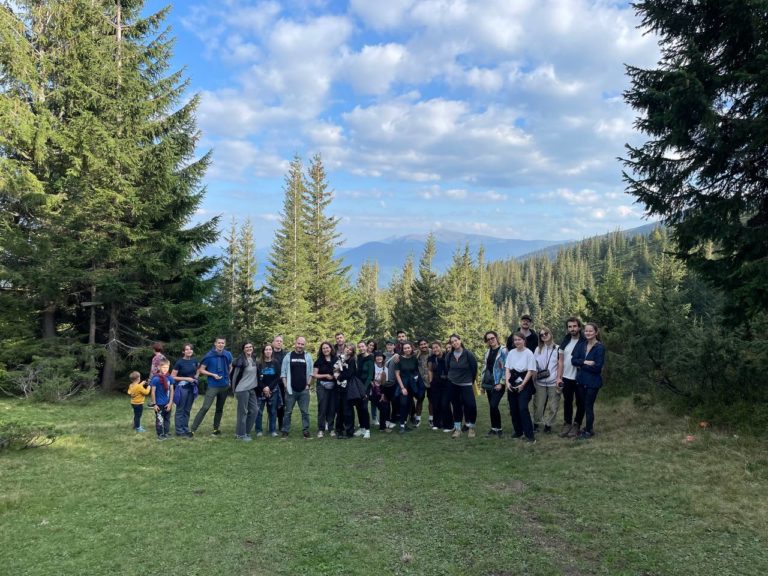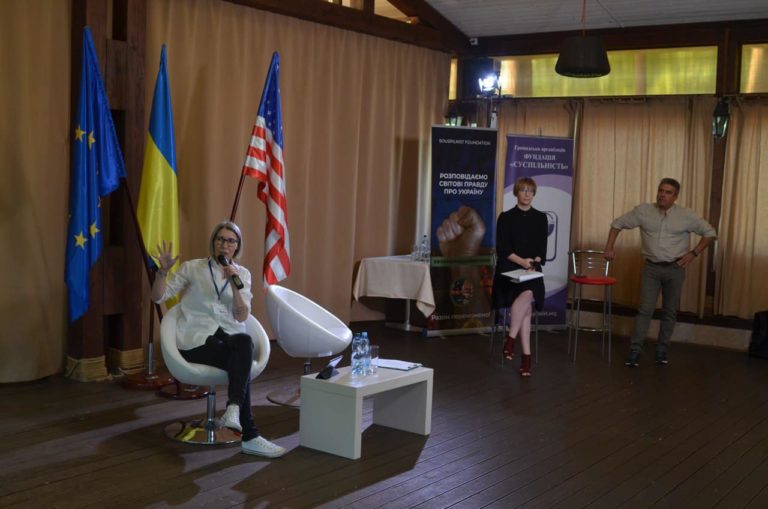During a crisis, challenges and opportunities go hand in hand.
What are the possibilities for financing the media in wartime? How do we get grant support? What are the peculiarities of building crisis management capability? How vital is psychological support in the team, and how can we avoid harm?
These are the questions answered by media experts during the online School of Media Management in wartime held by Souspilnist Foundation.
Yuliia Saliy, co-founder and publisher of the online media Skyscraper; Oleksandra Sverdlova, manager at NDI; Daryna Shevchenko, CEO at The Kyiv Independent; and Anastasiia Nizhnik, psychotherapist and co-founder of the Brain Cult Mental Health Center and the Resilience Hub platform at Souspilnist Foundation, shared their knowledge and experiences.
Media as a business. The mission is to survive the war
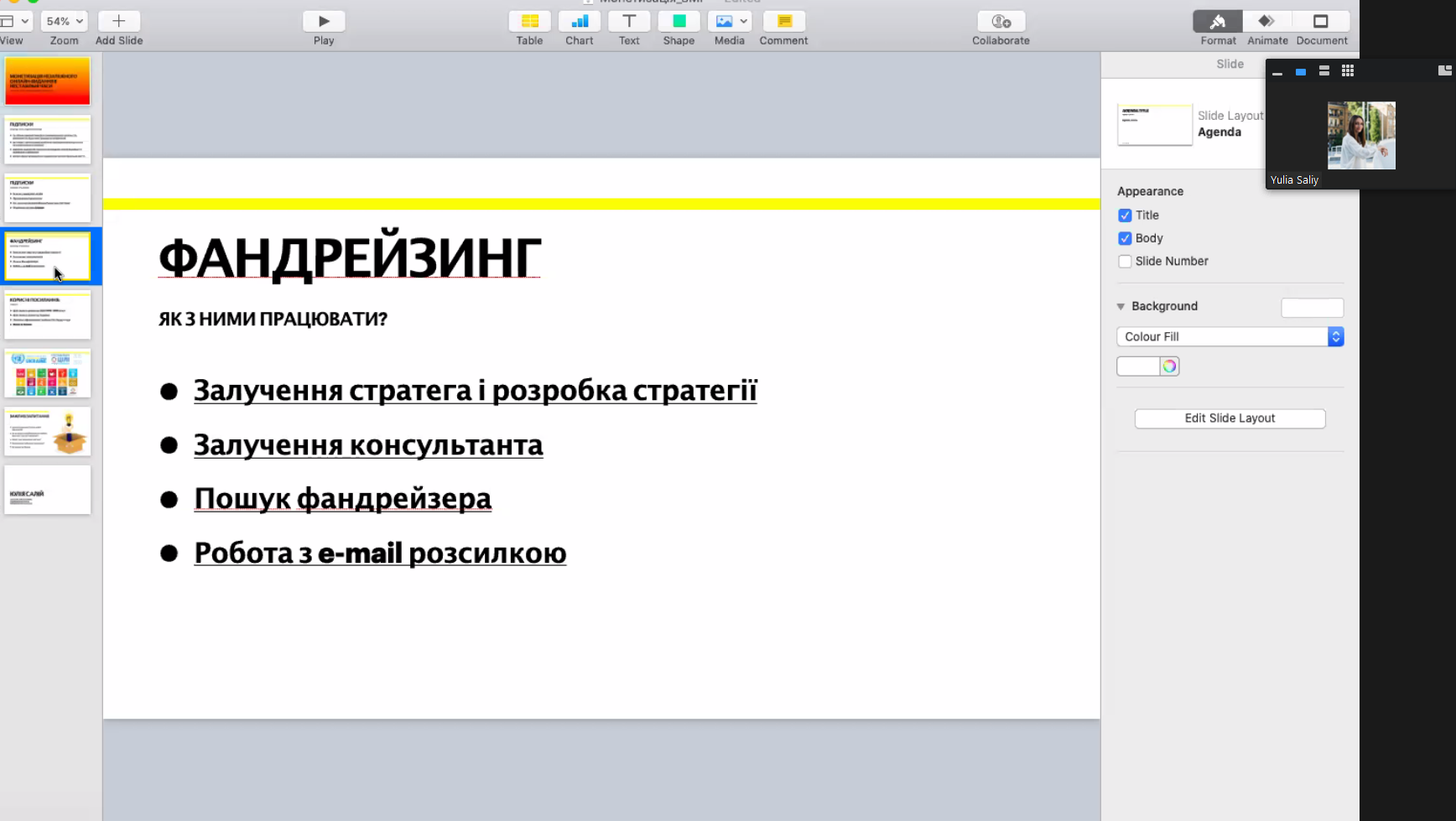
Yuliia Saliy spoke about media financing during wartime.
Skyscraper’s newsroom uses a diversified funding system, focusing on two sources of funding: subscriptions and fundraising.
To effectively attract paid subscribers, the expert advised the participants to:
- define the target audience;
- post subscription information as a banner on the site or insert a text block at the end of articles;
- have contribution options segmented into a one-time contribution or a monthly subscription;
- use the LiqPay payment system as it is currently the most universal.
You should think about the language you use in communicating with readers, develop the design, and set the frequency of messages about subscription possibilities. It will be a working system then.
Getting grant support
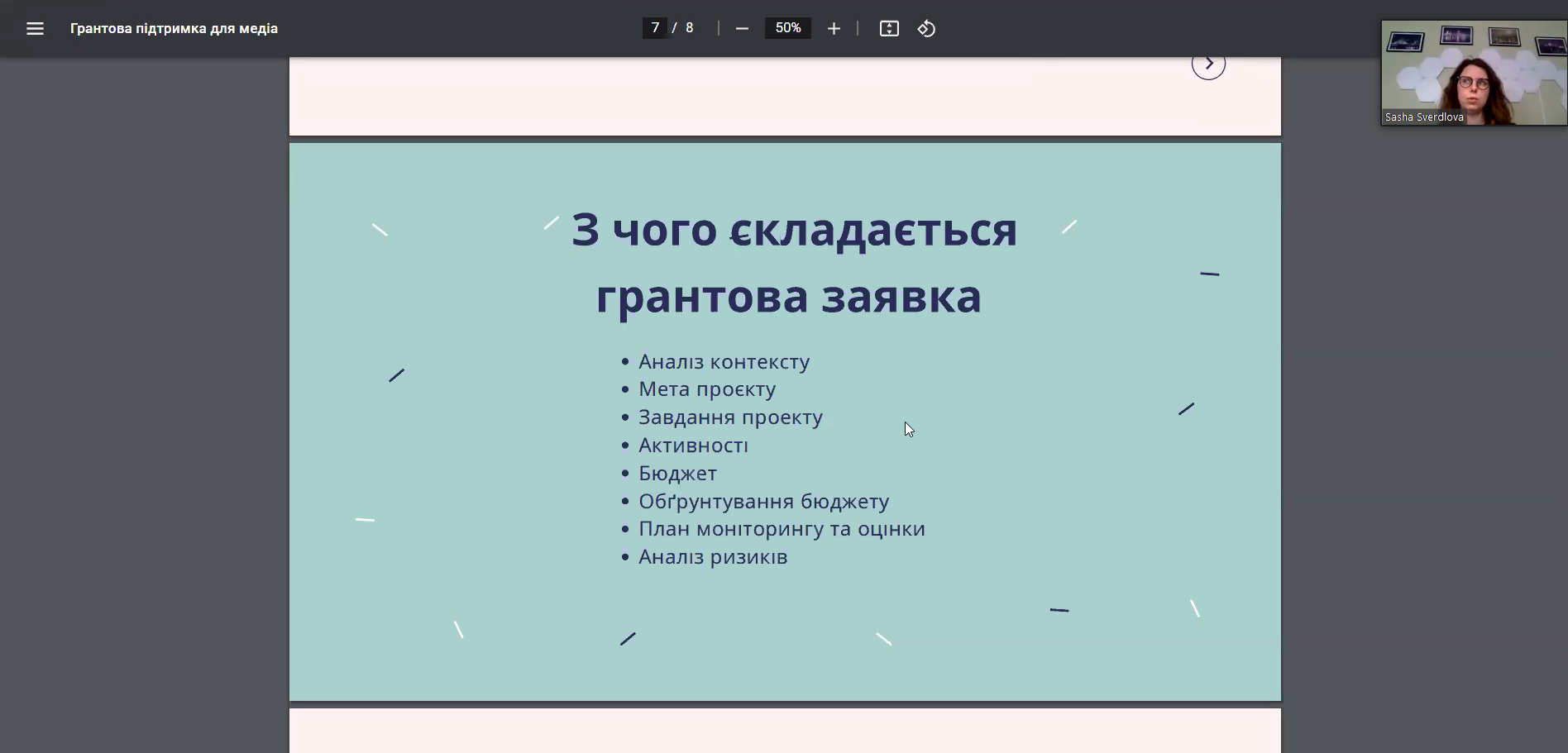
Oleksandra Sverdlova has previously worked with NGOs and filed applications for grant support. She is currently working for NDI, an NGO, providing grant assistance to media outlets.
To apply for a grant, one must provide the following:
- context analysis;
- the project’s purpose;
- project tasks;
- activities;
- budget;
- budget justification;
- monitoring and evaluation plans;
- risk analysis.
Before writing a budget, one must conduct a small study of current market prices. One must not invent or specify approximate prices. In this case, you will not be able to implement the project, and you will have to write to the donor again and ask them to realign the budget.
Crisis management in wartime
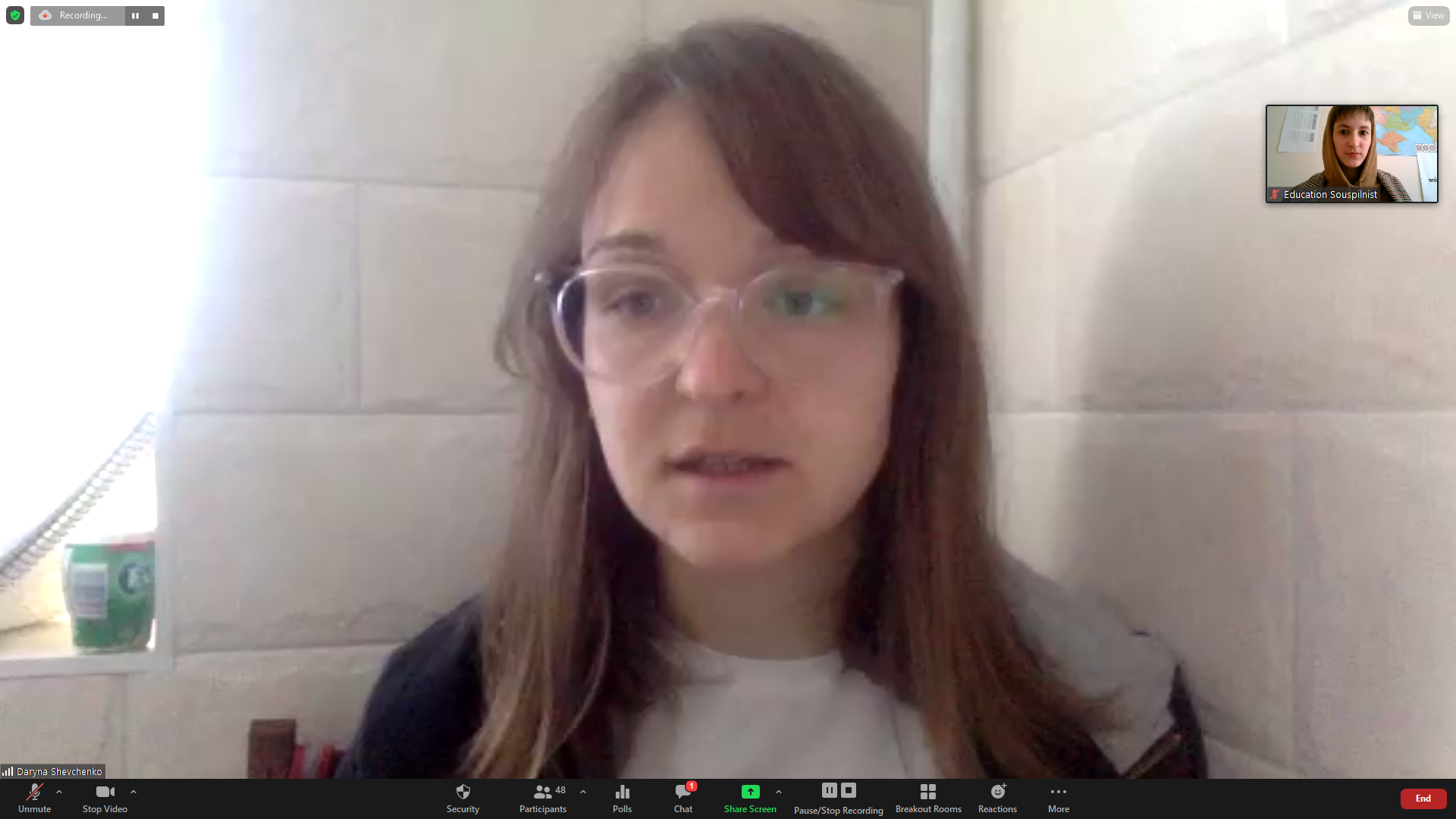
At the beginning of russia’s full-scale invasion of Ukraine, The Kyiv Independent (whose CEO is Daryna Shevchenko) was in its infancy. However, the media not only managed to stay afloat at a time of war, but it also increased its readership and made sure a financial cushion was in place.
There are always challenges and opportunities in any crisis, including war. The most important thing for any project is to build a strategy that also addresses the risk.
When it comes to the possibility of keeping the newsroom going, understandably, safety comes first. You cannot fire someone who is in danger. There has to be a manager to draw up a new work schedule and set new tasks and goals.
The media should be working. To secure funding, the following needs to be included in the strategy at an early stage:
- knowing that all ways of earning money are limited to certain factors and linked to the organization’s structural peculiarities;
- understanding who your target audience is and where they are located;
- developing (if possible) a donation page on your own website, or (if impossible) using external platforms, e.g., Spilnokoshtom, Patreon, or WayforPay. For this, you should find out which legal entity is suitable for this or that payment system at the registration stage.
We are working at a time of war. Providing psychological support to the team
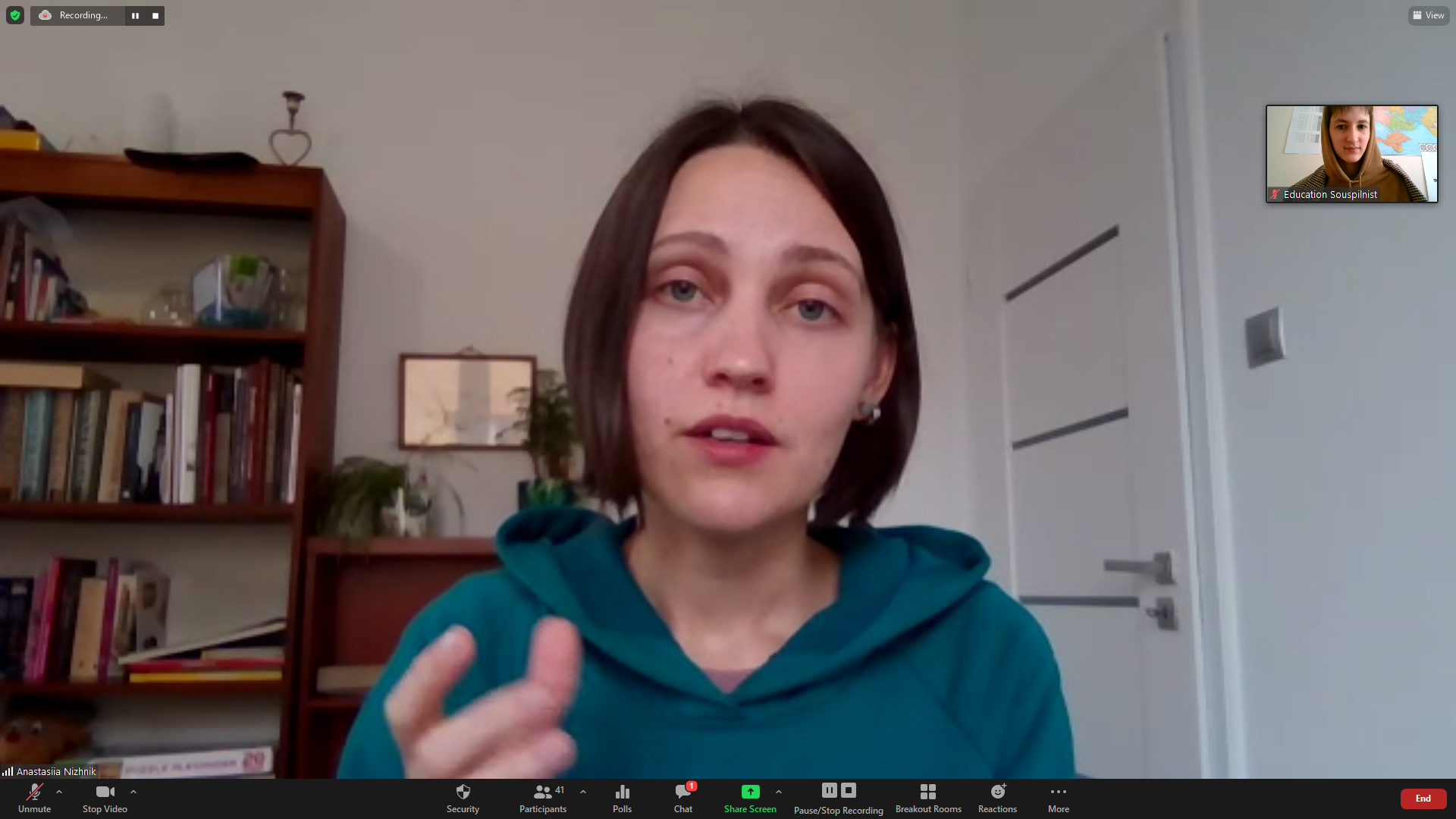
In wartime, it is important that newsrooms be able to accept new challenges (what remains unknown and uncertain, expectations and the altered life and work contexts, conditional safety, stress, and exhaustion) and know how to cope with them.
Psychotherapist Anastasiia Nizhnik advised the participants to be honest with their colleagues and talk about all the changes concerning jobs, salary opportunities, and new work formats. Information and communication give a sense of security, reducing uncertainty.
It is important to understand that people cannot be as efficient as before the war, which is normal. You should also accept that you are most useful where you are now.
Humaneness should be a priority. You should remember that your team members are currently going through what is, perhaps, the worst phase in their life. Your support is essential to them.
Fifty-five regional media representatives are ready to further develop their newsrooms with renewed force, continuing to counter russian disinformation. Many thanks to our speakers and participants.
